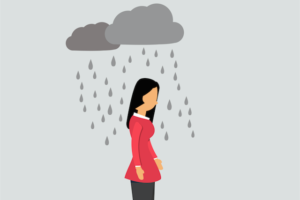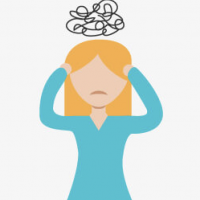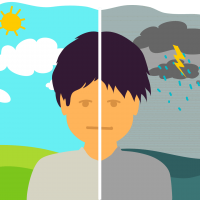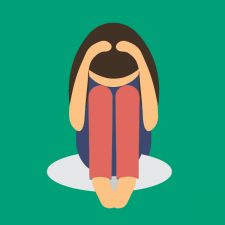Mental Health
Mental Health disorders are more common than you think. Here is an introduction to the most common disorders.
Depression

Depression interferes with your daily functioning
Depression is characterized by unbearable sadness everyday for a period of two weeks or longer. Some other symptoms include joylessness, feelings of unworthiness, lack of energy and thoughts of suicide. People with depression can also experience significant weight loss or weight gain and too little or too much sleep.
Anxiety Disorders

Inability to control your worring
Symptoms of Generalized Anxiety Disorder include constant worrying for a period of more than six months that is difficult to control. The worrying can make you irritable, tired, restless and unable to sleep. Even though it doesn’t usually have a specific focus, it can be related to upcoming and present events such as academic or professional performance.
Bipolar Disorder

Episodes of depression and mood swings
When episodes of depression are accompanied by episodes or mania, this is considered Bipolar Disorder. Mania occurs when a person experiences an abnormally good mood, overindulges in pleasure, has an extremely high sense of self-esteem, has little need for sleep or gets distracted easily for a week or longer.
Psychotic Disorders

Losing your sense of reality
Psychotic disorders are a category of sever mental health disorders characterized by altered perception and thinking. Symptoms include hallucinations and delusions in which false thoughts or beliefs are perceived as real. The most common psychotic disorder is schizophrenia
Trauma

Experiencing trauma can alter mental health
After living through a traumatic event, you may experience feelings of anger, sadness, fear and guilt. Depending on the nature and the severity of the traumatic event, this feelings can be persistent and lead to severe mental health disorders such as depression and Post-Traumatic Stress Disorder (PTSD).